Top 12 Best ERP Ecommerce Software For Your Business: Hit or Miss?

Business owners, it’s time to change your vision of an ERP ecommerce system and grow your online business!
Are you an ecommerce business owner and you feel that you could be more efficient by eliminating time-consuming tasks? Have you already heard about ERP ecommerce platforms, but think they’re not compatible with your online business?
Don’t worry, we’ll explain the definition, features, and advantages of ERP ecommerce, and you might change your mind. You might even find the best ERP ecommerce solutions for your growing online business.
Let’s get into it right now!
What is ERP Ecommerce?
ERP or Enterprise Resource Planning is a company's internal resource management system. In general, these systems help to make business processes more reliable and efficient. In many cases, they include:
- Customer Relationship Management (CRM),
- invoicing,
- order control and tracking,
- raw material procurement,
- supply chain management and inventory,
- accounting management,
- and other modules.
As management solutions for connected companies, ERP Ecommerce integration allows companies to centralize their management flows for multichannel activity (online, in-store sales, etc.).
Comparative table: best ERP for ecommerce
1 of 12
 Acumatica Cloud ERP |  Aptean ERP | 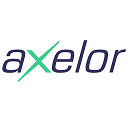 Axelor |  Brightpearl |  DDI System | 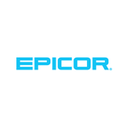 Epicor ERP |  Adobe Commerce |  Microsoft Dynamics 365 |  Odoo | 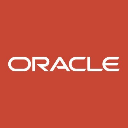 Oracle ERP Procurement Cloud | 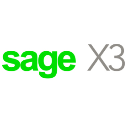 Sage X3 ERP | 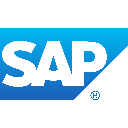 SAP ERP |
|---|---|---|---|---|---|---|---|---|---|---|---|
| For all companies | For all companies | For companies with more than 50 employees | For all companies | For all companies | For all companies | For all companies | For companies with more than 1 employees | For companies with more than 1 employees | For companies with more than 1 employees | For all companies | For all companies |
| See software | See software | See software | See software | See software | See software | See software | See software | See software | See software | See software | See software |
| Learn more about Acumatica Cloud ERP | Learn more about Aptean ERP | Learn more about Axelor | Learn more about Brightpearl | Learn more about DDI System | Learn more about Epicor ERP | Learn more about Adobe Commerce | Learn more about Microsoft Dynamics 365 | Learn more about Odoo | Learn more about Oracle ERP Procurement Cloud | Learn more about Sage X3 ERP | Learn more about SAP ERP |
Top ERP features for your Ecommerce
CRM (Customer relationship management)
Whether you’re in BtoB or BtoC, a sizeable chunk of your customer base has most likely made their first purchase via your website. In this case, they created a customer account by filling in their specific information online.
The key to effective customer relationship management and customer loyalty is integrating your online customer base's information into your ERP system.
Shipping and Distribution
Each customer’s order is then recorded:
- products purchased,
- quantities,
- frequency, etc.
This information, consolidated with other channels (store visits, etc.), makes it possible to set up communication and personalize promotional products through the marketing department.
As soon as an order is processed in an ERP system, its status is updated in the customer area of the website so that they can consult the progress of order processing.
Inventory levels and replenishment times
Connecting your ERP and your website allows the inventory levels to be updated from your ERP system and uploaded to your ecommerce site or vice versa. When a customer’s order is placed online, inventory levels are automatically updated in the ERP.
You’ll see in real-time the quantity of products actually available for each product. Inversely, when inventory is replenished, the quantities are updated in the ERP system and simultaneously on your ecommerce site.
This optimized management of inventory levels helps limit customer frustration when products are sold out. Which is always a good thing!
Billing and payments
After validation and eventual payment, the billing information is transmitted to the ERP platform to be processed by the accounting department. Most often, any reminders for non-payment will be automatically managed directly in the ERP platform.
4 Benefits of an ERP software in Ecommerce
So, what are the main advantages of connecting an online sales site with ERP ecommerce solutions?
Automatically updated information
When connecting an ecommerce site to an ERP system, information flows in both directions: from the ecommerce site to the ERP system and vice versa. The information is continuously updated automatically
Some data will be updated on the ecommerce site directly by the customer such as a change of delivery address, new email address, etc. The ERP system will help distribute this information to several internal company departments
For example, contact details are used by the marketing department for emailing campaigns, by the accounting department for reminders of unpaid invoices, etc
💡 Not updating customer information in real-time can have an impact on the quality of your customer relationships.
Data reliability
Since the data is updated automatically, there is almost no manual entry on your ecommerce site. That reduces the possibility of data entry errors. The information is unique, reliable, and centralized for all departments of the company.
Time-saving
Thanks to real-time data synchronization, you can free up your employees' time for more lucrative tasks than the same old monotonous tasks. In other words, this will help your online business eliminate repetitive and manual tasks to focus more on improving customer service.
Improved customer satisfaction
ERP ecommerce platforms help your online business, among other things, improve customer satisfaction:
- Reduce customer frustration linked to stock shortages.
- Optimize and personalize customer relationships with improved information flows between your website and the ERP
- Allow customer to monitor their order status via a dedicated customer portal. No more need for them to call customer service, freeing up time for other important tasks.
- Accelerate order processing with quicker deliveries that lead to satisfied customers
⚡ To give you a better idea about the benefits of integrating an Ecommerce ERP system in your business, you can take a look at this minibook made by Odoo and Appvizer.
Discover why equipping your business with an ERP for e-commerce management improves performance
Free downloadTop 12 Best ERP solutions for Ecommerce
If you are looking for the best ERP solutions out there for your ecommerce, we took a look and compared the top 12 ERP systems on the market.
Acumatica
Acumatica Cloud ERP is an integrated suite of financial management, customer management, distribution management, e-commerce, and manufacturing systems for mid-sized companies. The software can also be easily personalized and adapted to specific business needs.
This ERP solution is web-based and works with all popular browsers, allowing users to manage their online business from any computer or mobile device. The cloud-based software includes report writing tools, customizable dashboards, and personalized query screens so users get real-time information in the format they need.
Features
Acumatica Cloud ERP includes:
- Online assistance (forum, tutorials, etc.)
- Technical support (phone, mail, chat, etc.)
- APIs
- CRM
- Consumption-based licensing
- Mobile Access
- Purchases and receipts
- Alerts/Notifications
- Real-time analysis
- Financial Analysis
- Customer order management
This ERP provides web-based customization tools and a fully documented API and system development kit. Customization creations are managed separately from the software, so they aren’t affected by system upgrades.
The ERP also allows documents to be linked directly to financial transactions, help files, input screens, and reports, or organized using a business wiki to simplify information sharing and reduce auditing costs.
Pricing
Acumatica Cloud ERP software rates are available on request, but the cost is likely to evolve because various upgrade options are offered by the publisher to meet the needs of its users.

Acumatica Cloud ERP
Aptean
Aptean ERP is a cloud-based ERP software for businesses and professionals. The Aptean software is particularly recommended for administrative, accounting, and business management in ecommerce. This ERP software is commonly used by small to mid-sized businesses.
Features
Aptean ERP software includes:
- ERP Accounting
- Business Intelligence
- Customer Relationship Management
- Human Resources Management
- Inventory Management
- Manufacturing
- Supply Chain Management
- Purchasing Management
- Business Tax Management
- Detailed Statistics
- Customer order statistics
Aptean ERP includes APIs to integrate with other IT applications such as a CRM. These integrations allow you to connect to a database, exchange data, or synchronize files between several computer programs.
Pricing
An Aptean ERP subscription is available on request (this software has a free trial). The software publisher also offers options to meet the needs of users and growing businesses: number of licenses, additional functions, add-ons, etc.

Aptean ERP
Axelor
Axelor is an Open Source ERP that is completely modular and integrates more than thirty business applications, including CRM, sales and purchase management, invoicing, company management, accounting, inventory and production management, and human resources management. By minimizing the expensive custom developments as much as possible, the solution adjusts to the needs of your businesses; whether it be small or big.
Features
Axelor’s solution includes:
- Complete Functional Coverage
- CRM integration
- Customer & Supplier Portal
- Available on any device at any time
- Commercial & global management
- HR management
- Collaborative Work
- Supply Chain
- Quote Management
- Marketing Campaign Management
- Event Management
Pricing
There are many plans available with Axelor; with prices easy to obtain on their site. The first plan is Community with unlimited users, then there is Enterprise Starter from 10 users (price gets degressive from 50 users) and then there is Company Pro from 20 users (price gets degressive from 100 users).

Axelor
Brightpearl
Brightpearl is a cloud-based omnichannel retail management system that brings your orders, inventory, financials, point of sale, and CRM together in one place.
This ERP is recommended for accounting, sales, marketing, web, and multimedia tasks in ecommerce. This system package is commonly used by small and medium-sized companies, and also large enterprises.
Features
Brightpearl’s solution includes:
- Inventory management
- Customer order management
- Shipping & fulfillment
- Warehouse management
- Retail accounting
- Ecommerce analytics
- CRM (customer relationship management)
- High scalability
The software is combined with real-time reporting on inventory, cash flow, product profitability, channels, customers, and more, enabling you to make data-driven decisions and execute an effective strategy to grow your online business.
Brightpearl can connect to other systems such as Shopify, Magento, NetSuite, QuickBooks, and other CRM cloud-based software.
Pricing
Brightpearl has a transparent pricing policy, meaning you pay only for what you use! To get a customized quote that matches your unique business needs, you can contact their sales department. Brightpearl states that their customized costs include everything you need to grow your own way, and with unlimited users at no extra cost.

Brightpearl
DDI System
DDI System is an ERP distribution management system that provides CRM, ecommerce, and reporting all in one system for businesses and professionals. This platform is especially designed for small to medium-sized businesses. DDI System Inform software can also connect to APIs & plugins.
The DDI System platform is cloud-based and therefore compatible with most corporate information systems as well as with most operating systems such as Windows, macOS, and Linux, and accessible from a web browser (Chrome, Firefox, etc.).
Features
The special functionalities of the DDI system include:
- ERP Accounting
- Business Intelligence
- Customer Relationship Management
- Human Resources
- Inventory Management
- Manufacturing
- Supply Chain Management
- Purchasing Management
- Business Tax management
- Detailed customer order statistics
This software package can also be accessed remotely (office, home, on the go) from mobile devices such as a tablet or a smartphone. There is a mobile application available on the Play Store/App Store. To use it, you’ll need a stable Internet connection and an updated browser.
Pricing
DDI System rates are available upon request. They also offer a free trial to try before making a decision.

DDI System
Epicor
Epicor Software is a global leader in providing enterprise software solutions. With more than 45 years of experience, the Epicor ERP platform provides flexible, industry-specific business software that meets the precise needs of their manufacturing customers.
With this deep understanding of each industry, Epicor ERP software can help your online business improve performance and profitability while simplifying complexity and allowing your online business to grow more quickly.
Features
All the functionalities of the Epicor ERP ecommerce platform include:
- Logistics Management
- Inventory Management - Stocktaking
- Detailed customer order statistics
- Project Management
- Resource Management
- Graphics Management
- Database Management
- Training Management
- Human Resources Management
- Commercial Management
- Invoice Management
- Sales Management
- Online customer assistance (forum, tutorials, etc.)
- Technical support (phone, mail, chat, etc.)
Driven by the needs of today's users, Epicor ERP is a comprehensive ERP solution that provides the choice, flexibility, and agility to drive growth and opportunity across your online business.
Pricing
The price is $175 per user, per month which is affordable for the various functionalities your company can access.

Epicor ERP
Magento
Magento is one of the most complete ecommerce solutions on the market. It is also the most used ecommerce CMS in the world, with a 20% market share.
Magento is an open-source ERP program (like Prestashop and WordPress), free to download, and mainly aimed at medium and large companies.
Magento allows your company to create ultra-customized efficient ecommerce sites through extensive functionalities.
On the other hand, Magento is probably the most complex ecommerce CMS to handle due to its functional richness. The configuration and customization of a Magento website requires some programming skills, unlike turnkey solutions like Wix or Shopify.
Features
What are Magento’s key tools? Here they are!
- Coupon management, with the ability to set up promo codes for offline customers
- Customer segmentation, based on geographic or demographic criteria
- Display recently viewed or complementary products on your product pages
- Saved shopping cart: when the customer leaves the site, they can easily find it again when they return to continue their shopping journey.
- Emailing
- A wide range of SEO tools to manage your content
- Fine-tuned management of access and permissions.
- Possibility to import or export your product catalog in CSV format.
- Integration with Google Analytics
- Newsletters, etc.
Your company can manage several sites straight from your Magento interface. Creating your product pages is relatively intuitive.
Pricing
Officially, Magento is free for every company. You can download the software from the official website without paying a single cent. But just because the software is free to download does not mean that creating a Magento ecommerce website is free.
Creating a Magento ecommerce website involves several costs such as the domain name, extensions, site maintenance, etc.

Adobe Commerce
Microsoft Dynamics 365
More than software, Microsoft Dynamics 365 is a range of business management applications created by Microsoft to equip companies of all sizes with the power to digitalize their operations: sales, marketing, customer service, operations, HR, etc. Microsoft Dynamics is therefore both a CRM and ERP ecommerce software program with very advanced functionalities.
Features
Some of Microsoft Dynamic 365’s functionalities include:
- Customer order management
- Multi-criteria search, filtering, and segmentation
- Viewing of interaction history
- Enable AI-driven intelligent commerce
- Email campaigns marketing module
- Email automation
- Quotes
- Invoices
- Customer service management, support tickets
- Chat with customers
It includes a very complete and powerful tool to structure the work of sales representatives, optimize their productivity, and manage sales activity. The most expensive packages even include automation tools based on artificial intelligence.
Pricing
To begin with, Microsoft Dynamics does not offer free software. However, you can test the software for 30 days for free. To do so, you must already have a business e-mail address associated with a Microsoft business account.
The prices of Microsoft Dynamics are difficult to summarize since they depend on various criteria: modules used, the number of users, functionalities, etc. So, we recommend you take a look for yourself directly on their website.
Microsoft Dynamics Sales is among the most expensive CRM systems in our selection (starting from $65 per user, per month, up to $135 for their highest plan). But this can be explained by the richness of the features offered and especially the companies for which the software is intended.

Microsoft Dynamics 365
Odoo
Odoo is a modular open-source management solution. The international company, present in 120 countries, includes a series of applications covering a large majority of business functions.
Their modules include CRM (customer relations), accounting, invoicing, inventory management, website creation, HR management, project management, and many others for your ecommerce business. Odoo includes services for all types of enterprises and companies of all sizes.
Features
Odoo is a complete and adaptable solution to grow your ecommerce business. You can therefore complete your package with the functionalities that allow you to:
- Create a website
- Manage your ecommerce site
- Handle HR management
- Organize events
- Manage inventory and stock
- Optimize marketing actions with different modules
- and much more.
Creating invoices is also fast with this software. They are sent by email to the customer, who can then pay online via different online payment platforms such as PayPal, Authorize.net, Stripe, etc.
Pricing
It’s possible to group all the tools you need to manage your online business under a single umbrella.
Even if this is a great advantage, it obviously comes at a cost! The prices go up quickly when you start adding on the applications.
Odoo is a pay-per-use software, so the price is based on :
- the number of users
- and the number and type of applications chosen
Odoo has subscription pricing for its different modules generally ranging from $12-$36 per user, per month. Despite this, the first application that you choose is free, so if you only need some ERP ecommerce features then this might be the option for you.

Odoo
Oracle Netsuite
NetSuite was one of the very first cloud software options out there. Originally it was a simple accounting program, but it has evolved into a complete ERP software enriched with CRM and ecommerce functionalities. Acquired by Oracle in 2016, NetSuite now boasts 22,000 customers in 160 countries.
NetSuite ERP ecommerce can adapt to companies of any size. Originally, NetSuite was targeted at growing small and medium-sized enterprises, but today it’s a leader in its market and also provides service for large businesses.
Features
Unlike some similar ERP software, NetSuite can be used in any industry. However, it best meets the needs of the retail and commerce sector thanks to its point-of-sale, warehouse, and ecommerce site management functionalities.
NetSuite's ERP ecommerce integration enables companies to go omnichannel with unified management of customers’ orders, warehouses, stores, and online stores.
- CRM (customer relationship management)
- Categorization
- Inventory management
- Multi-store management
- Mobile access
- Returns
- Shipping
- Social media integration
Pricing
In short, it is impossible to tell you how much NetSuite ERP ecommerce will cost you: you will have to contact the sales team or a distributor to get a personalized quote. In any case, expect it to set you back several thousand dollars per month at least

Oracle ERP Procurement Cloud
Sage
Sage is a world-renowned ERP Ecommerce software publisher. It provides a 100% online version of an accounting and invoicing management tool for online businesses.
The Sage ERP ecommerce software is designed for professionals who want to grow their ecommerce independently, whether they are self-employed, professionals, or small and medium-sized enterprises.
Features
Sage ERP ecommerce integration provides:
- Real-time reports
- Connect online to offline sales
- Site configuration
- SEO tools integration
- Shipping for customers
- Tax calculations
- Data security
The integration is quick. When you first open the application, the home page includes integration guides for configuring and using the software, which is very useful. The rest of the application is fairly intuitive. The menu is clear and the different actions are easily accessible.
Pricing
Sage ERP ecommerce provides 3 free months and you can cancel it at any time during that period. The paid plan starts at $12 per user, per month.

Sage X3 ERP
SAP
The SAP ERP ecommerce platform is the world leader in ERP software for ecommerce and one of the largest business software companies in the world.
SAP has built a complex offering to address the needs of all sizes of business, from small and medium-sized to large enterprises.
Features
SAP ERP ecommerce integration includes:
- Commercial management: estimates, invoices, customer orders
- Customer purchasing and suppliers
- Inventory management
- Production management
- Warehouse and logistics management
- CRM (customer relationship management)
This ecommerce software provides a platform to help companies optimize their purchasing processes and manage the entire supplier relationship through :
- purchasing management: orders, goods receipts, return;
- real-time inventory and manufacturing process tracking;
- supplier and customer tracking.
Pricing
SAP ERP ecommerce prices are not public: it’s difficult to give a price range as the integrations are so varied. The cost of SAP ERP ecommerce software depends on several factors:
- the number of users for each module ;
- the choice of hosting: on-premise or in the Cloud;
- the associated services: implementation, support, training, etc.

SAP ERP
Conclusion
In sum, connecting your online ecommerce site to an ERP system allows you to improve the customer service of your company, and build customer loyalty. This important technology is what will help differentiate your ecommerce business from the competition.